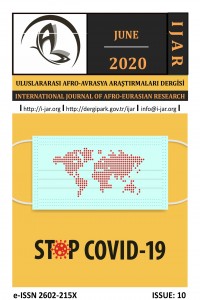Öz
Tereke mirasbırakanın ölümü ile birlikte mirasçılara geçer. Mirasçılık belgesi ise mirasçıların tereke üzerinde hak iddia ederek ilgili resmi mercilerde intikal işlemleri yapmasını kolaylaştıran bir belgedir. Mirasçılık belgesi verilmesi çekişmesiz yargı işidir. Bu nedenle sonradan ilgililerce verilen mirasçılık belgesinin geçersizliği iddia edilebilir. Mirasçılık belgesi resmi belge niteliğinde olmasına rağmen kesin hüküm niteliğine haiz değildir. Mirasçılık belgesi kural olarak yasal mirasçılar, atanmış mirasçılar ve vasiyet alacaklıları talep edebilir. Bu kişiler dışında özel kanun hükümlerinde düzenlendiği üzere mirasbırakanın veya mirasçıların alacaklıları ve tapu müdürlükleri de Tapu Kanunu’na dayalı olarak mirasçılık belgesi talep edebilmektedirler. Mirasçılık belgesine ilişkin TMK md. 598 dışında bir kanun hükmü bulunmamaktadır. Bu nedenle oluşan kanun boşluğu Yargıtay kararları ile doldurulmaya çalışılmaktadır. Mirasçılık belgesi sulh hukuk mahkemeleri veya noterlerden talep edilebilir. Mirasın reddi, mirastan yoksunluk, mirastan feragat ve mirasçılıktan çıkarma hallerinde, mahkeme hükmünün infaz edilmeye uygun, açık, anlaşılır olması gerekmektedir. Bu husus son Yargıtay kararlarında da açıkça ifade edilmektedir. Böylelikle intikal işlemlerinde yaşanacak sorunların önüne geçilmekte ve infazda tereddüdün ortadan kaldırılmasını sağlamaktadır. Terekede taşınmaz bulunması ve mirasçıların yabancı olması halinde, Tapu Kanunu md. 35’in değişmesi nedeni ile karşılıklılık şartı kaldırıldığından mirasçılık belgesi taleplerinde karşılıklılık şartı aranmayacaktır. Bu kanun değişikliği ile mirasçıların yabancı olması durumunda mülkiyet hakkı ihlalleri engellenmiş ve intikalde yaşanan zorluklar giderilmiştir.
Anahtar Kelimeler
Mirasçılık Belgesi Veraset İlamı Çekişmesiz Yargı İşi Tanıma Tenfiz
Kaynakça
- DURAL, M., & ÖZ, T. (2019). Türk Özel Hukuku Cilt IV Miras Hukuku (13. Bası). İstanbul: Filiz Kitabevi.
Öz
Heritage, passes to heirs upon the death of the legator. The certificate of inheritance is a document that facilitates the right of heirs to claim on the heritage and to perform the transfer procedures at the relevant official authorities. Granting a certificate of inheritance is a matter of non-contentious jurisdiction. Therefore, the invalidity of the certificate of inheritance given by the relevant authorities can be claimed later. Although the certificate of inheritance is an official document, it does not have the quality of final judgment. As a rule, legal heirs, appointed heirs and probate creditors may claim the certificate of inheritance. Apart from these individuals, creditors and deed directorates of the inheritor or the inheritors can request a certificate of inheritance based on the Land Registry Law, as regulated in the provisions of the special law. There is no law provision other than Article 598 of the Turkish Civil Code (TMK) concerning the certificate of inheritance. Therefore, this legal gap is tried to be closed by the decisions of the Supreme Court. The certificate of inheritance can be requested from civil courts of peace or notaries. In cases of disclaimer of inheritance, disinheritance, renunciation of inheritance and debarment from inheritance, the court provision must be clear and understandable, suitable for execution. This issue is clearly stated in the recent Supreme Court decisions. Thus, the problems that will be experienced in the transfer process are prevented and the hesitation in the execution is eliminated. In heritage of immovable property and foreign heirs, reciprocity requirement is removed due to change of title Land Registry Law Article 35, reciprocity requirement will not be sought in claims for certificate of inheritance. With this amendment of the law, if the heirs are foreigners, violations of the right to property are prevented and the difficulties in transfer are resolved.
Anahtar Kelimeler
Kaynakça
- DURAL, M., & ÖZ, T. (2019). Türk Özel Hukuku Cilt IV Miras Hukuku (13. Bası). İstanbul: Filiz Kitabevi.
Ayrıntılar
| Birincil Dil | Türkçe |
|---|---|
| Bölüm | Makaleler |
| Yazarlar | |
| Yayımlanma Tarihi | 30 Haziran 2020 |
| Yayımlandığı Sayı | Yıl 2020 Cilt: 5 Sayı: 10 |
All rights reserved. International Journal of Afro-Eurasian Research (IJAR) is an International refereed journal and published biannually. Authors are responsible for the content and linguistic of their articles. Articles published here could not be used without referring to the Journal. The opinions in the articles published belong to the authors only and do not reflect those of International Journal of Afro-Eurasian Research.


